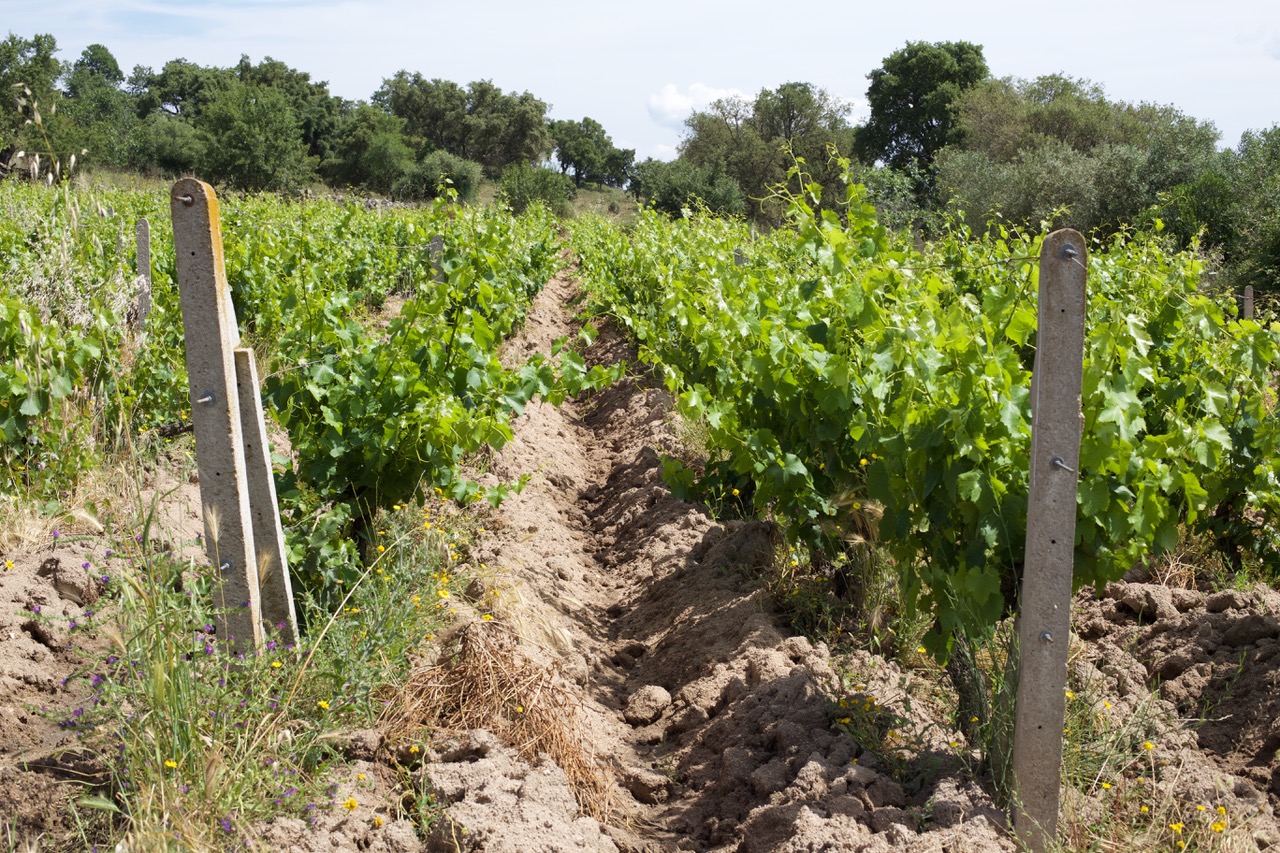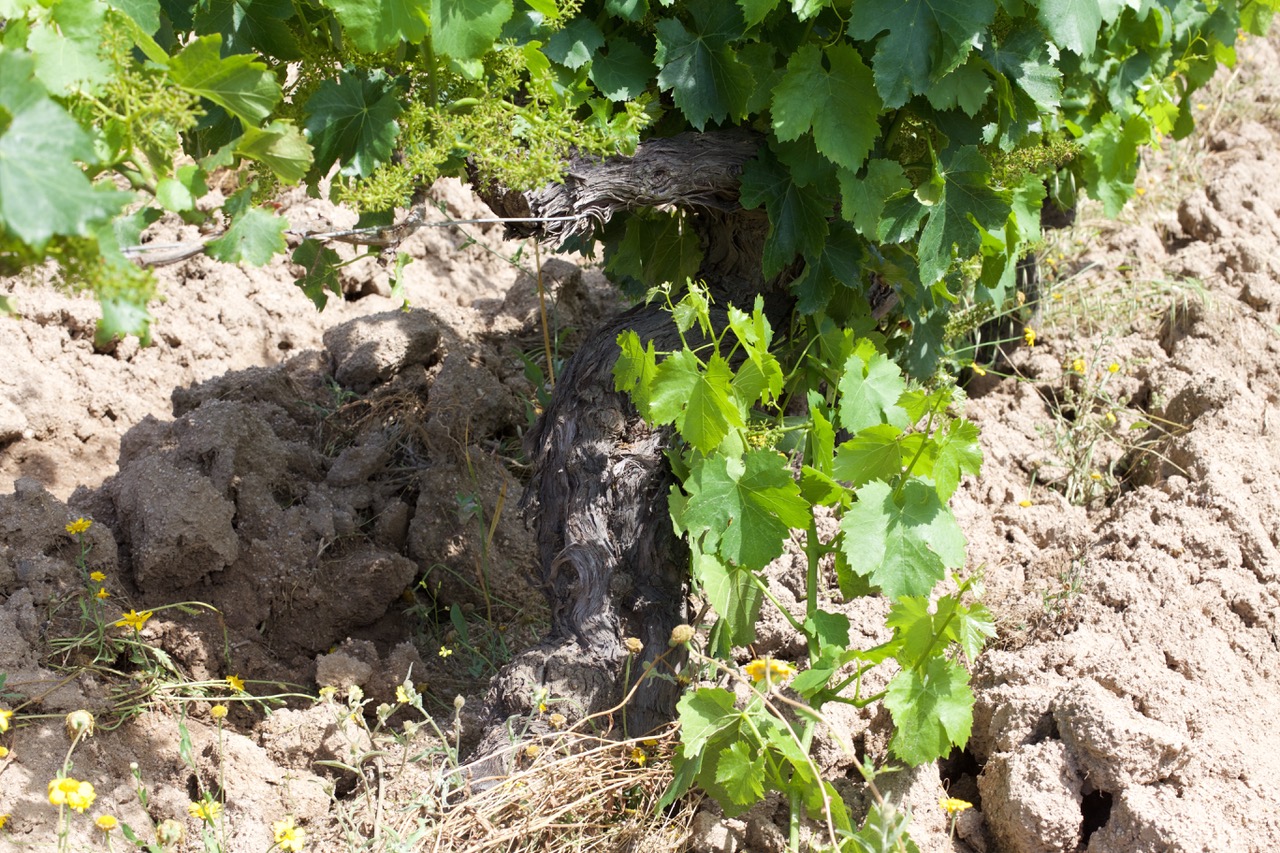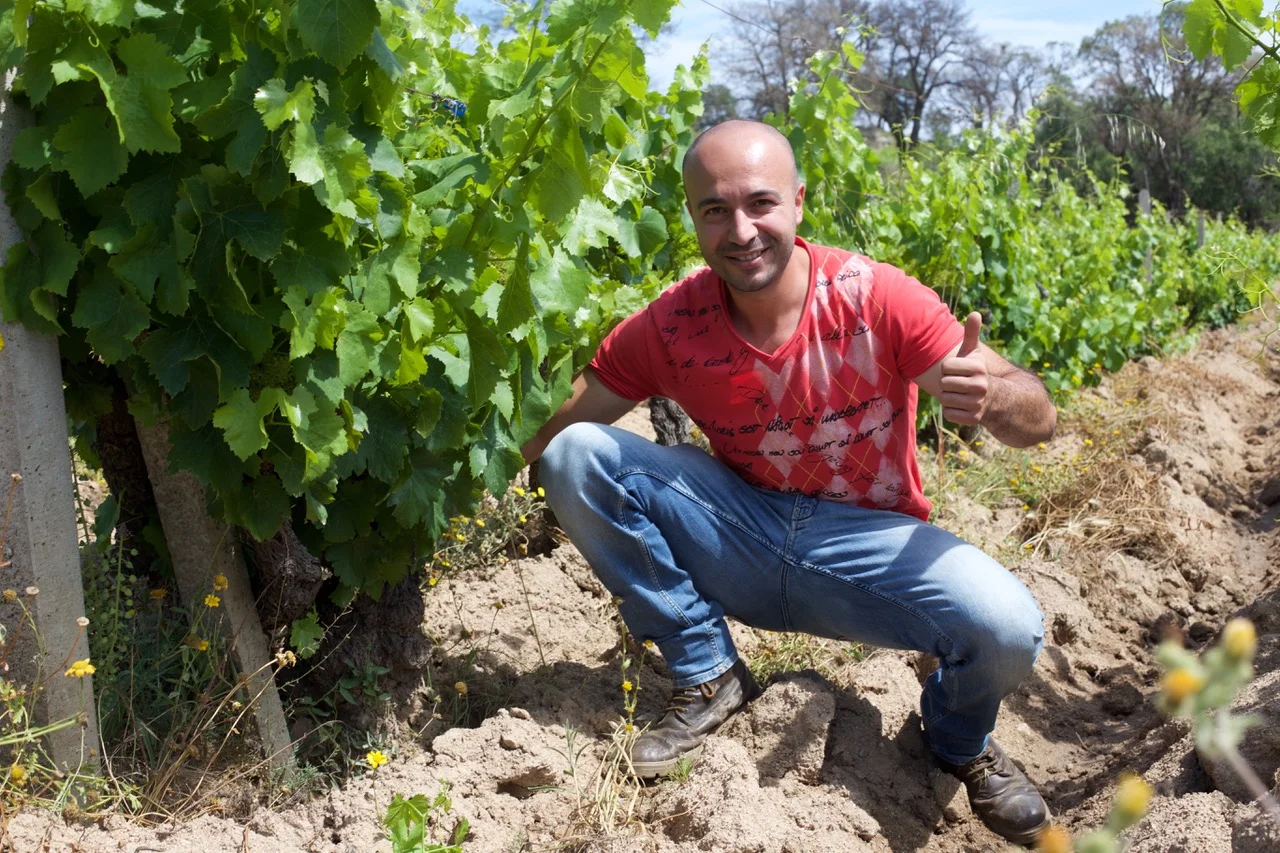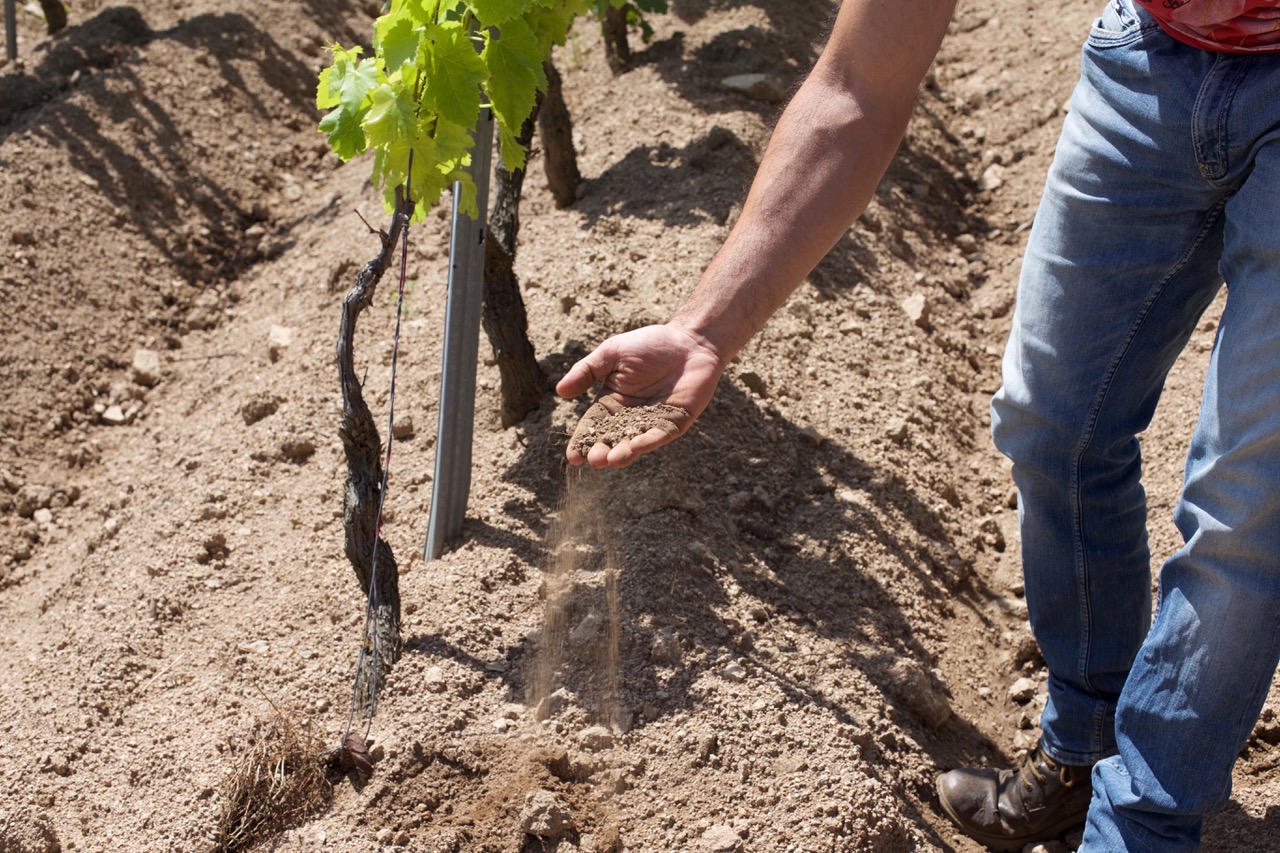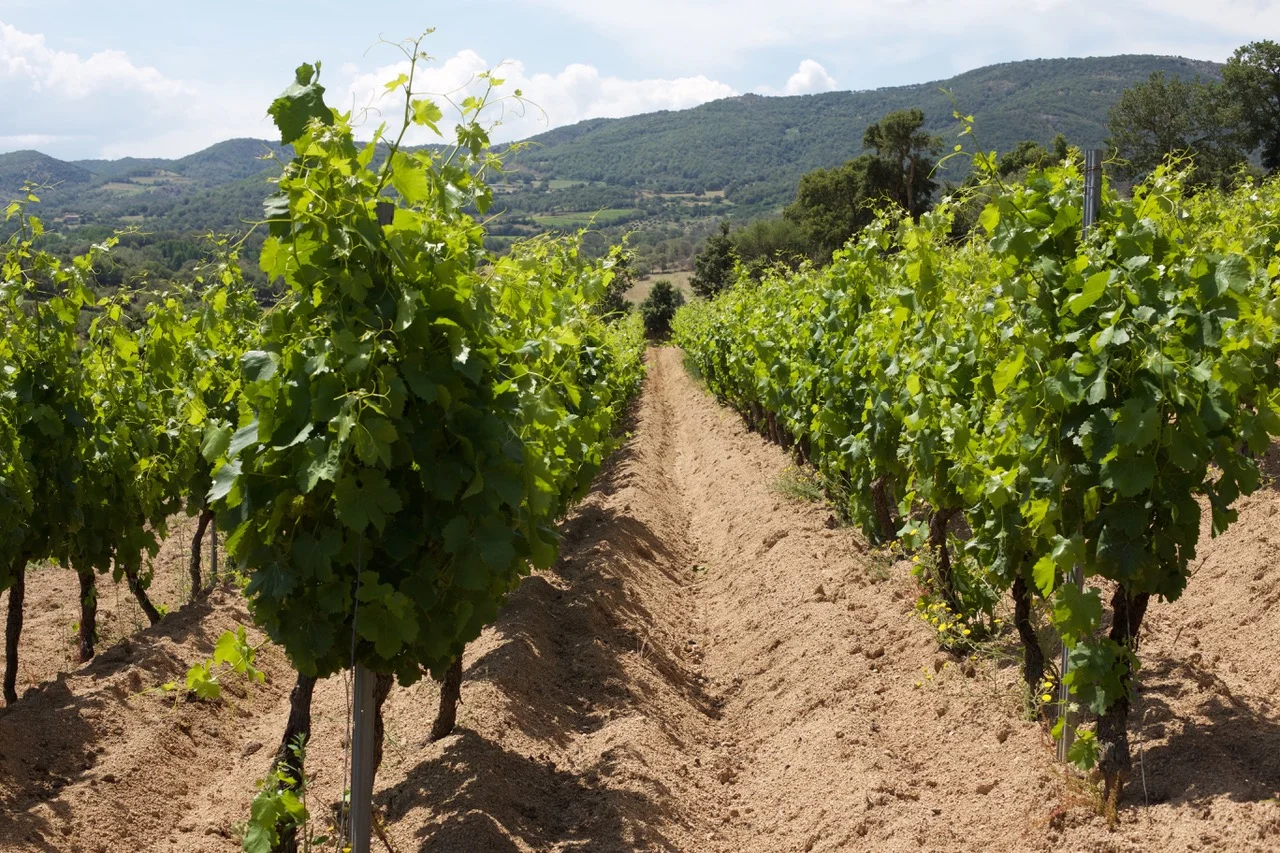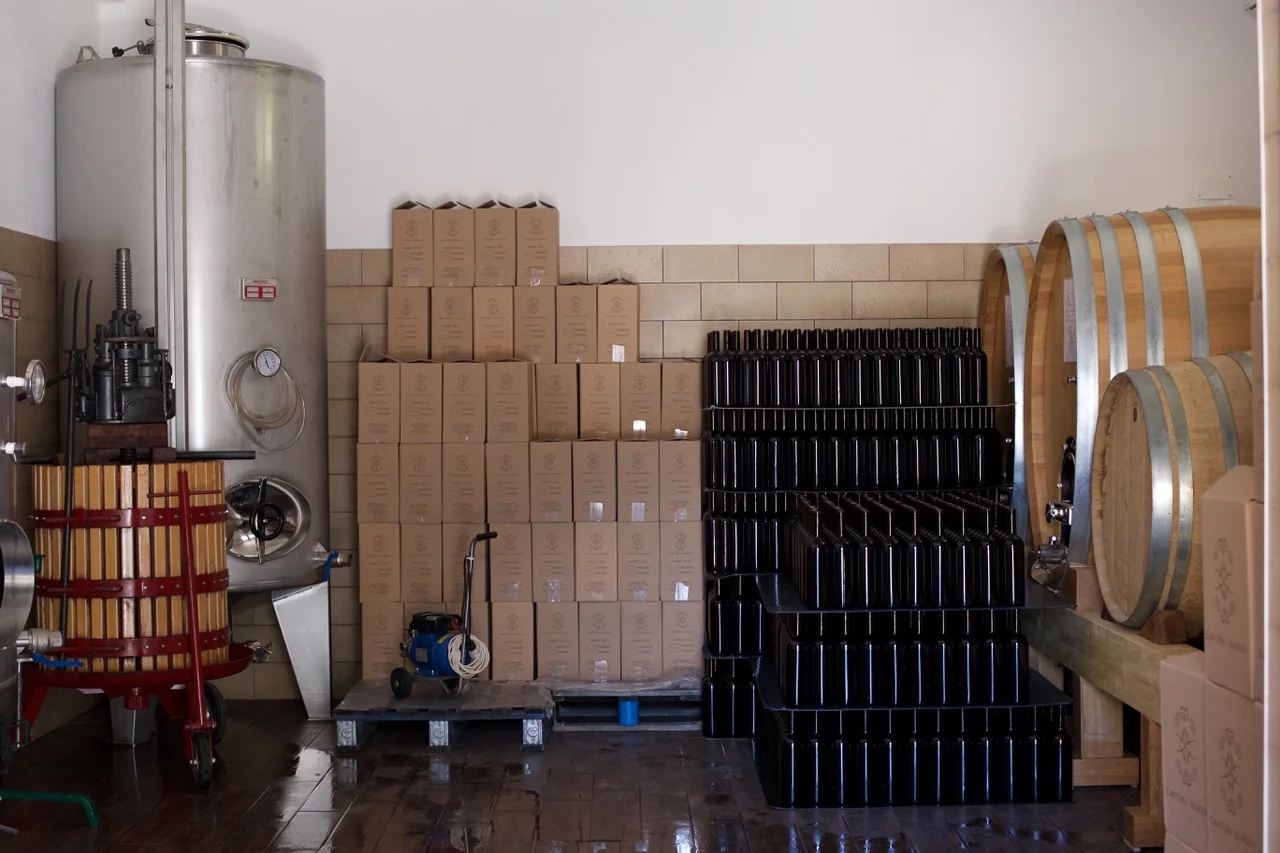Berteru
_____________________________________________
Organic viticulture
Bush-trained, massal-selection vines
Very low yields
_____________________________________________
about berteru:
Berteru means sincere in the Mamoiada dialect. You only need to spend a few minutes with Luca Gungui to know why he gave his wine this name. He himself is a genuine soul. He wants his wine to reflect the expression of the soil and the area from which it comes. That area is the impossibly small town of Mammoiada in the province of Barbagia in the hills of central Sardinia. This is where Cannonau, long considered Sardinia’s most important red, grows best.
Luca left Mammoiada to be a lawyer and settled in Cagliari, the Southern ‘big’ city of Sardinia. He quickly became disenchanted with his work and moved back to Mammoiada to farm his grandfather’s three hectares of Cannonau. The oldest hectare is 60 year old vines. They have the same granite soils of the Gallura area, famous for Vermentino, to the north. He’s been farming organically from the beginning and with the philosophy that less is more. As such they try to do as little as possible in the vineyards. They move the surface soil between the rows twice per year to make sure the roots go down deep. They have a lot of wind and sun to keep the grapes healthy so they don’t have to make sulfur treatments every year and do at most 2 per year in the wettest years, far less than the majority of the grape growing world. They rarely have to use copper sulfate in the vineyards, the other substance approved for use in organic farming.
Luca says the three most important things that define his wine are the soil, the temperature difference between day and night (20-22 degrees), and the altitude, 650-700 meters, the highest vineyard area in the larger region of Barbagia. Luca is one of our smallest producers which is why we have so little wine to sell. When Luca harvested his first vintage he didn’t have anywhere to make wine. In talking to his father, his father suggested they take the car out of the garage and make the wine there, a true ‘garagiste’! They since planted an additional hectare but they don’t want to make more than that because they like to keep the work in the family and 4 hectares is plenty of work. The vines are chosen by traditional massal selection*, and bush-trained. (Luca is working on a project to ensure that the best individual old Cannonau vines are propagated.)
A note about Cannonau:
The black-skinned grape variety called Cannonau is genetically identical to the French Grenache and Spanish Garnacha, and it has long been assumed that the Aragonese (Spanish) who conquered the island in the fourteenth century brought the variety with them. Luca says that an ancient settlement that was being excavated in 2015 about 50 kilometers from Mamoiada revealed Cannonau grape pips; the settlement dates to about 2,000 years BC, which strongly suggests that the variety is indigenous to Sardinia. (Ian d’Agata in his excellent Native Wine Grapes of Italy is more skeptical.) At any rate, it is a historic variety in Sardinia, and the village of Mamoiada produces the best wines from it. The soil is granitic, and the vineyards are found at unusually high altitude for red wine production, some as high as 700 meters above sea level.
_____________________________________________
the wines:
En Rosé Rosato
Grenache can make great rosé in the south of France, so it’s no surprise that it can do the same thing here in Sardinia, particularly given the altitude around Mamoiada. (High elevation vineyards allow the fruit to retain acidity, even in a hot climate, and these sites are planted at more than 600 meters above sea level.)
This rosé is made entirely of Cannonau from Luca’s younger vines (normally those that are between 3 and 5 years in age); it is picked to make rosé specifically, which is to say about two weeks before the reds; given about 2 hours of skin contact, then pressed off and fermented in stainless steel.
The wine: very pale pink color, ‘onion skin;’ fresh aroma of wild herbs and red fruits; on the palate very densely flavored but also very fresh, thanks to the elevation of the vineyards and the early harvest. Serious rosé is one of the most broadly useful wines with food, and I’ll be drinking this with everything from grilled seafood to roast chicken, and all kinds of pasta dishes. One of Italy’s most interesting rosés. Drink this from release to at least 3-4 years of age.
cannonau di sardegna ‘nuraghe sas de Melas’
Bush-trained Cannonau (also known as Grenache) from a vineyard called Sas de Melas, at 600 meters (about 2,000 feet) above sea level, near the village of Mamoiada. This altitude is unusual for red wines, and gives the wine uncommon freshness (cooler night-time temperatures at altitude mean higher acidity in the grapes). The vines were planted in 2004 and 2010 in soil based on decomposed granite.
The grapes are picked in late September or early October, de-stemmed and crushed, and fermentation begins using indigenous yeasts only, encouraged by a a ‘pied de cuve'* (Luca believes that cultured yeasts don’t give a wine that truly is representative of place.) The wine is left in contact with the skins for 10-12 days, then pressed off. The wine is aged for about 6 months in stainless steel tanks, lightly fined, then bottled without filtration.
Notes: mid-red, with aromas and flavors of red fruits (wild strawberry particularly), blackberry, and hints of mediterranean herbs. Very good fresh fruit notes on the palate, with the freshness typical of such a high growing site; moderate fine tannins.
Cannonau di Sardegna Riserva
Some winemakers clearly think that ‘Riserva’ on the label should mean ‘tarted up with more oak, more ripeness and maybe some international grape varieties,’ but not Luca Gungui. This is the real thing - the vineyard is the focus, not the winemaking. And what a vineyard; Luca says: ‘Planted in 1952, albarello trained, 0.7-hectare vineyard rented from a shepherd who couldn’t take care of it.’ (My favorite producer note ever.) So: old Cannonau/Grenache vines, cultivated at very high elevation for red wines, which is to say around 600 meters above sea level, very low yields, decomposed granite soil. Winemaking: about 40% whole cluster, indigenous yeast fermentation with a ‘pied de cuve,’ three to four weeks of contact with the skins, then after pressing about 10 months in 1,000 liter ‘botti’ before bottling. Luca says he ‘works like a maniac’ in the vineyard during the year. Among other things he works the soil superficially twice a year to remove superficial vine roots, forcing the plants to root deeply.
The wine: very dark color for this thin-skinned variety, almost opaque; red fruits and wild herbs on the nose and on the palate, very fine ripe tannins, very fresh acidity for a ‘big red’ due to the elevation of the vineyard. Outstanding wine, complex and distinctive; the texture is so well done that you could drink it on release but I am sure this will age beautifully.
Cannonau di Sardegna ‘sa cava de Pulenaria’
Sa Cava de Pulenaria is one of the steepest and highest vineyards in Mamoiada. Luca bought it from a shepherd, who agreed to sell it as long as he could continue to use it in the spring. The vines are young but the wine is expressive. On the palate there is black plum, cherry, dried fig and forest floor with an attractive sour note on the finish. It has a silky texture that makes this very complex and robust wine drinkable now; it will improve for at least five years in the bottle
_____________________________________________
more information:
Visit the Cantina Gungui website
Vineyard Tour with Lucca Gungui
